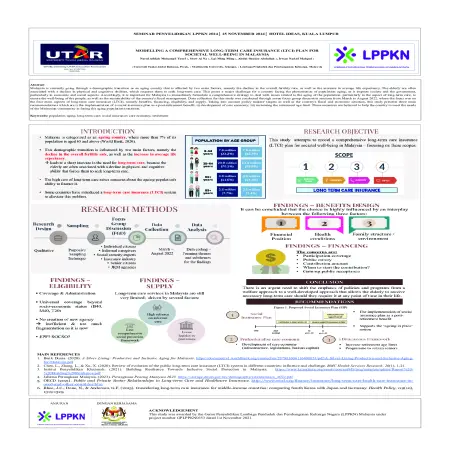| Abstract |
Malaysia is currently going through a demographic transition as an aging country that is affected by two main factors, namely the decline in the overall fertility rate, as well as the increase in average life expectancy. The elderly are often associated with a decline in physical and cognitive abilities, which requires them to seek long-term care. This poses a major challenge for a country facing the phenomenon of population aging, as it impacts society and the government, particularly in economic and social aspects. Accordingly, it is important for Malaysia to immediately formulate a comprehensive strategy to deal with issues related to the aging of the population, particularly in the aspect of long-term care, to ensure the well-being of the people, as well as the sustainability of the country's fiscal management. Data collection for this study was conducted through seven focus group discussion sessions from March to August 2022, where the focus was on the four main aspects of long-term care insurance (LTCI), namely benefits, financing, eligibility, and supply. Taking into account policy makers' targets as well as the country's fiscal and economic situation, this study presents three main recommendations which are i) the implementation of a social insurance plan as a post-retirement benefit; ii) development of care economy; iii) increasing the retirement age limit. These measures are believed to help the country to meet the needs of the Malaysian community in facing the aging population transition. |





